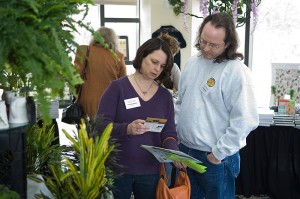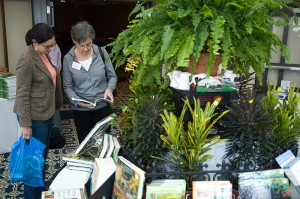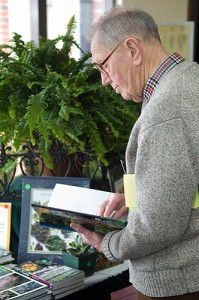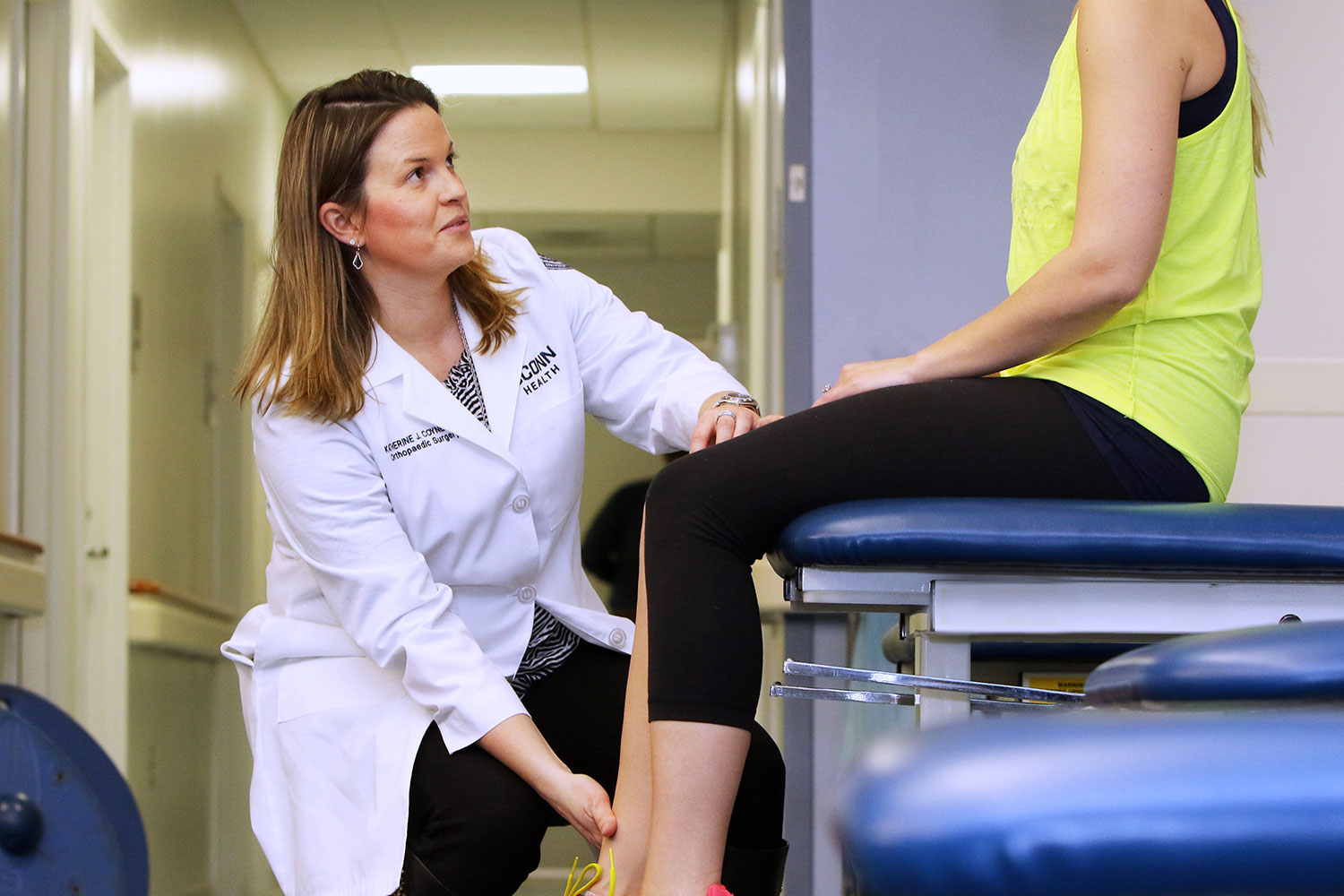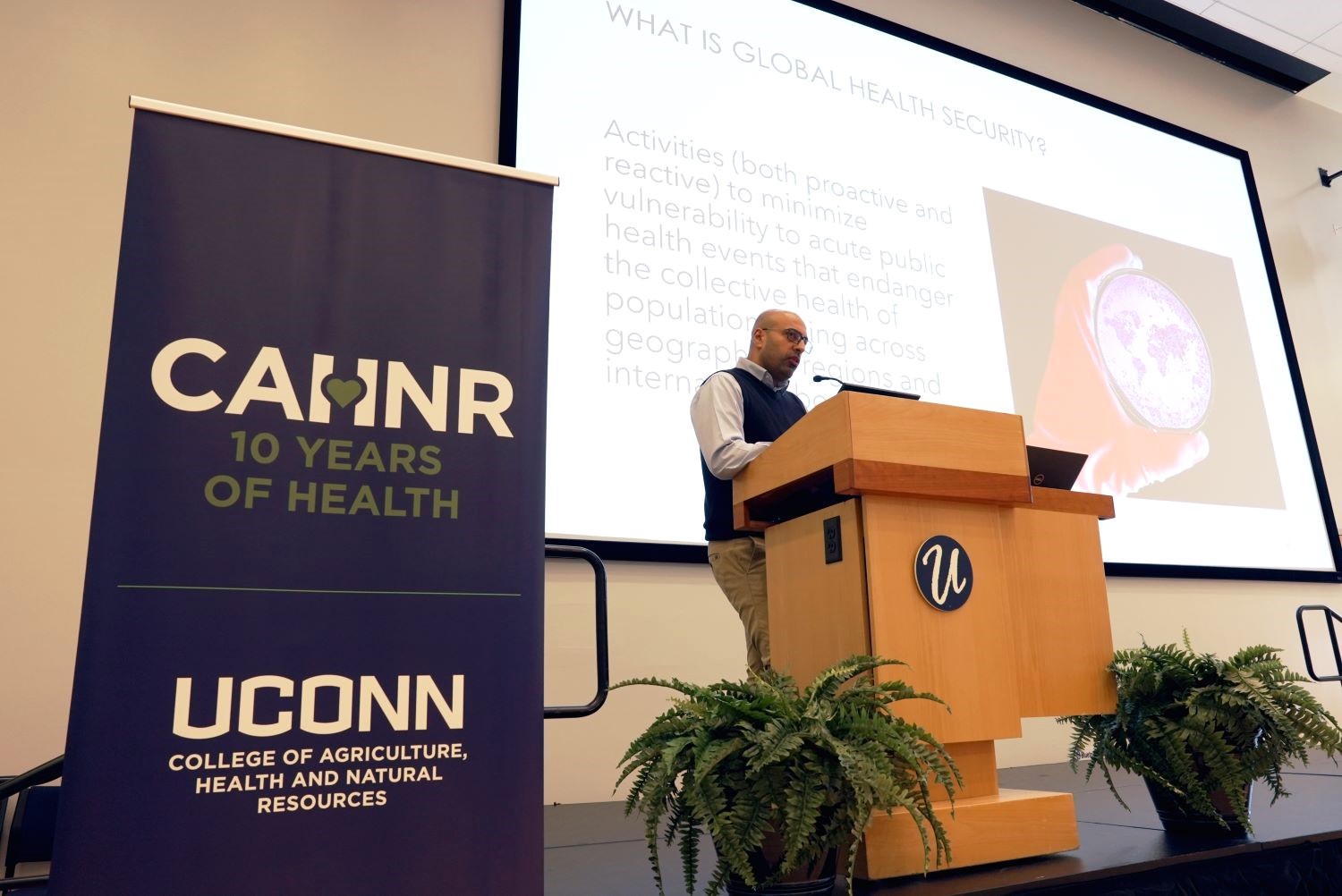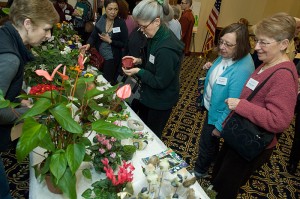
Environmental sustainability in the garden was the topic of the day at this year’s UConn Garden Conference. Home gardeners from around the state gathered in Storrs to learn how they could make their gardens and landscaping healthier and livelier by using techniques that are beneficial to the environment.
Five speakers gave talks on diverse topics, including designing a garden with silver plants, recycling rainwater from household rain gutters, and using environmentally friendly planting techniques. Richard McAvoy, the conference’s organizer, says that sustainability is an important issue to people who work with plants.
“Sustainable gardening issues, such as reducing waste and using fewer pesticides, are very topical,” he says. “This conference will help people make their gardening more environmentally friendly.”
The conference, held March 12 in the Rome Ballroom, drew about 300 attendees, some of whom were casually interested in backyard gardening, while others sought credits to advance their status as Master Gardeners. But, says McAvoy, they were all looking to find out what’s new.
“People come to this conference to learn what’s new in the gardening world,” says McAvoy, an extension specialist in the Department of Plant Science and Landscape Agriculture. “They get tips on garden design, and they learn about new plants and how to use them.”
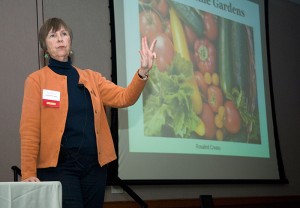
Keynote speaker Rosalind Creasy, author of a bestselling book The Complete Book of Edible Landscaping, gave advice on how to create theme gardens, such as Italian vegetable gardens and gardens filled with edible flowers. Edible landscaping, she said, is a traditional way to be sustainable.
“When you can feed yourself, you use a lot less water, fertilizer, and pesticides than are required to grow crops in bulk,” she said. “For every tomato you grow, you take that much more land out of necessary farmland and give it back to the Earth.”
Many experienced gardeners who have earned the distinction of Master Gardener also attended the conference. These skilled plant specialists complete a 16-week training course and perform 60 hours of community service to earn the certification through the UConn Cooperative Extension System at five regional training centers throughout the state. In addition to the training, they volunteer their time to share their horticultural knowledge with the community through programs at their local Cooperative Extension Centers.
After earning the Master Gardener distinction, explains Dawn Pettinelli, an assistant cooperative extension educator, people can earn credits toward Advanced Master Gardener status by attending events such as the Garden Conference.
Although the process may sound daunting, Pettinelli says, anyone with a love for the hobby can achieve these honors.
“You don’t have to be a master gardener to become a Master Gardener,” she jokes. “You just need to have a love for gardening, a willingness to learn, and an interest in giving back to the community.”
